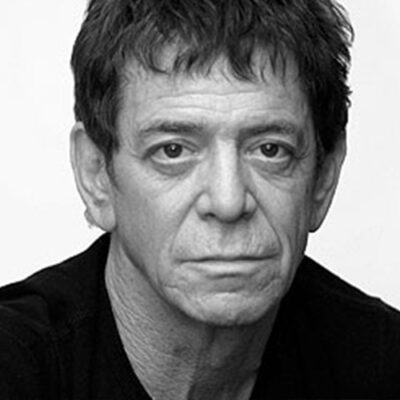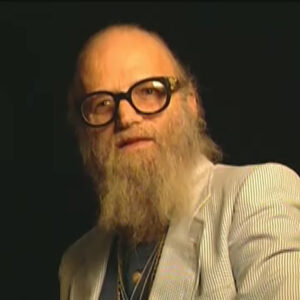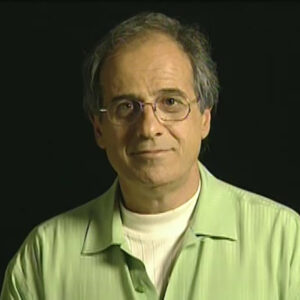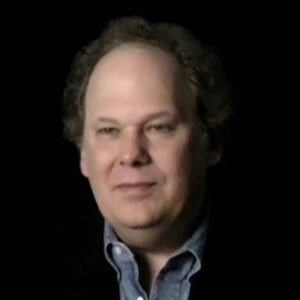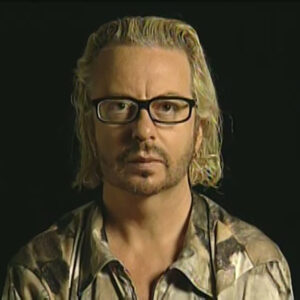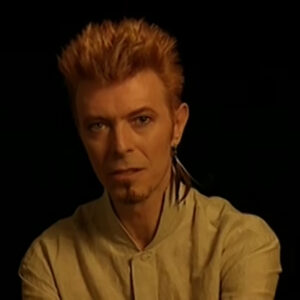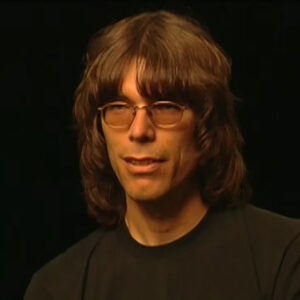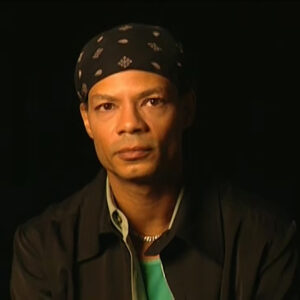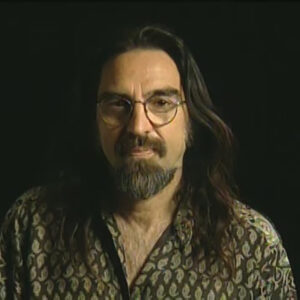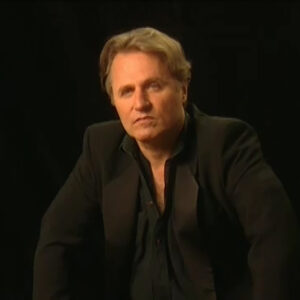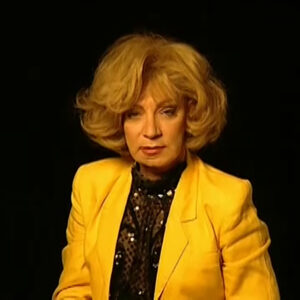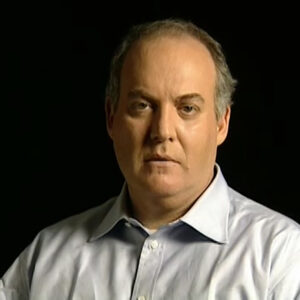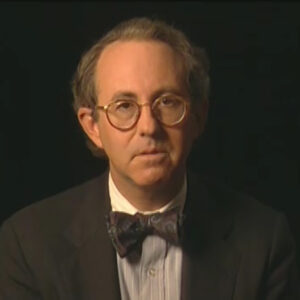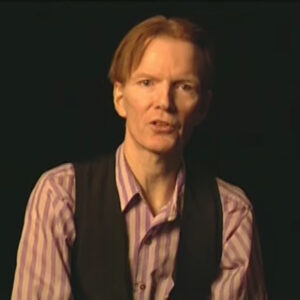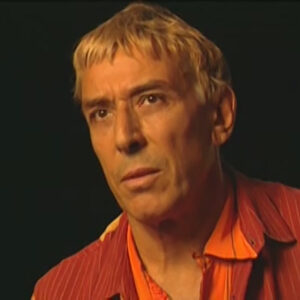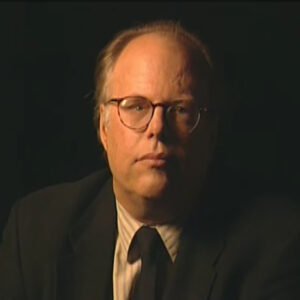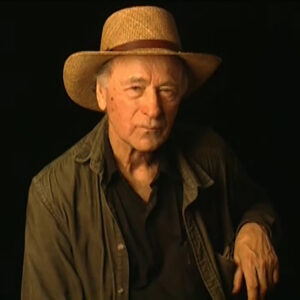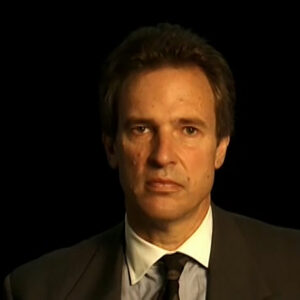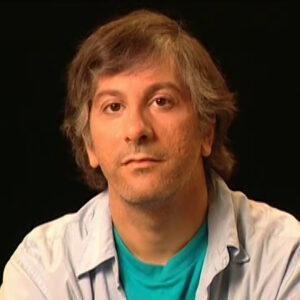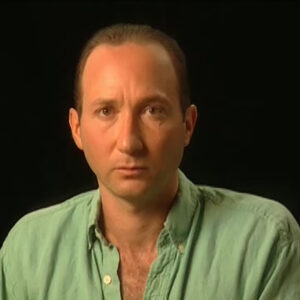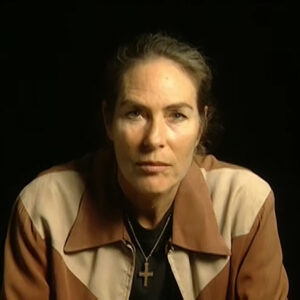Thurston Moore: Yeah. The first time I became aware of the Velvet Underground, specifically, Lou Reed was in the early 70s and I was a teenager. I think I was fifteen or sixteen and I lived in rural Connecticut. And every once in a while, I would go with my parents into Manhattan and I would buy weirdo rock magazines like Creem Rock Scene. And I remember buying Creem magazine, and there was a lead off record review of Lou Reed’s first solo album and was written by Lester Bangs. And he saw it. And the way it was written and the way that Lester was writing about this guy was so kind of appealing to me. And there was some there was some kind of sense of real kind of what kind of weirdo vibe going on with this artist. And and the review is sort of talked about the Velvet Underground, where this guy came from, the Velvet Underground and served. I kind of had heard the name Velvet Underground from reading other kind of weirdo rock magazines while I was growing up, whatever I could get my hands on. And the way Lester sort of described Lou Reed’s music just sounded really great to me. And I already had sort of romantic notions of New York City. Anyway, it was like, that’s really kind of mythological landscape as opposed to where I lived. And anytime I could ever get there with my father, who is who is a musician, he taught classical music. And he would go into Manhattan for various reasons. And I was his teenage son who was just rejecting classical music. So, I mean, anything that was completely disturbing to him I liked. And that was definitely Lou Reed. So I’m going on buying at Lou Reed record and I thought it was okay. But at the same time, when I went to I think I went into like a like a to find it in Connecticut. And I saw the first Velvet Underground album with a banana on the front. I picked that up as well. That’s when albums were like three dollars and they were somewhat affordable from laundering money. So it was pretty cool. And I really like a banana record and I would really stare at it. And I was somewhat familiar with Andy Warhol just because my father was also teaching art as well. So I saw had some kind of knowledge of that. And so you can’t really interesting. And I really just immerse myself in the first underground record. And I think that was one of the reasons I moved to New York. I decided to move to New York was the Velvet Underground and we just sort of what they kind of represented New York to be, which was like a really mysterious kind of environment. And that was had this real underground of poets and writers and musicians doing kind of radical work. And that was really alluring for me in a way. And so there was a real lineage from like, you know, going underground to Lou Reed to Patti Smith, who who was a person who obviously was something more sort of kind of more in line with my was more contemporary. With me was Patti Smith, in a way. And she seemed to sort of be carrying the torch of the kind of the literate person doing rock and roll. And, you know, so it was like Lou to Patti to the first Ramones album cover, which had the same kind of thing. I would start the Ramones album cover and think like, this is where I want to be in front of that brick wall in black and white. And, you know, the rest is history.
Interviewer: Can you talk a little bit about the lyrics that affect you?
Thurston Moore: Yeah, it’s kind of a sweaty.
Interviewer: Little bit there. Yes. OK. So let’s go back to the second to Lester. OK. Just talk about.
Thurston Moore: Yeah, I mean, most of the information I had on Lou Reed was coming from rock magazines and the rock magazines that would deal with Lou Reed. And that was basically Creem magazine. And it was Rock Scene magazine. We saw a lot of great pictures of Lou Reed, but not so much text. Creem magazine always had these really extrapolated meetings between Lou Reed and Lester Bangs, which, you know, to a teenage kid in the suburbs were just bizarro and like it just sort of created this. You got you have this perception of these these characters in Manhattan going head to head with this really kind of weird kind of beating each other kind of thing. And but there are obviously they were both intellectuals, even though they were intellectuals doing a lot of speed. So it creates this really psycho vibe. And as a teenager in the early 70s, you know, you were experimenting with speed and smoking a lot of pot. And and so people like Lou Reed and Creem magazine, you could really relate to this like, oh, you know, these were really great Big Brother figures, you know, because they they really knew how to use speed and and still were really sharp and kind of had something going on. And, you know, being interested in poetry and being interested in music and, you know. Where do we leave off right now? I mean, sometimes you need continuity.
Interviewer: Of right there.
Thurston Moore: But now as a. You know, I had a teenage friend in Connecticut and he was the only friend I knew who sort of had the same interests as me. As far as music and that was listening to Velvet Underground, listening to The Stooges, listening to all this, like weird music that you’d find out information from the M.C.5, you know, the guys that nobody else listened to. But for some reason, you were you were really into. And, um, and you were getting all this information from these, uh, these rock and roll magazines. And I was kind of curious why nobody else is really into this music. Why nobody in my high school knew who the Velvet Underground were. They didn’t know who Iggy was, not to sing at that time. Patti was sort of becoming, uh, known and started hearing about the Ramones. You started hearing about CBG scene. You started hearing about Punk magazine that was coming. You saw it because I would come to New York and I would see these these flyers around. And Punk magazine was like this, uh, drawing of Lou Reed as Frankenstein. And it’s all the signs, all those people out there who were obviously into this and aware of it and they’re promoting it. It’s on an underground scale. But how come nobody I know in my small town is aware of this and it’s so great. And I would bring this music to school and I wish I’d bring the magazines a school and show it to people. And they would just think I was nuts. And they’re like, you know, why are you into this this horrible stuff? And that’s the time when Emerson, Lake and Palmer and. Yes. And the Allman Brothers were sort of the kings of rock. And, you know, I would hear that stuff and I wasn’t offended by this stuff. But, you know, it didn’t really speak to me on any personal level. And, um, you know, maybe the Allman Brothers did, you know, the whole Ramblin Man stuff, but not really. I mean, the Velvet Underground really, really sort of spoke to me in a way, just sort of whole. All these images of of this kind of the way weird intellectual living in New York and getting involved with the underworld. And it’s still having this real wit that really appealed to me. And I wrote the first time I went to see Lou Reed is not the same time he started going into New York and seeing Ramones concerts and stuff like that at like Max’s and CBG movies and seeing things like suicide. And I would see all these people at these shows and they were obviously really in 2002. But as a 16 year old, I could just go to these people because most of my more adult lives. So I went to see Lou Reed and Waterbury, Connecticut, thinking nobody would be there. And it was right when Berlin came out, which I thought was a fantastic record. And it was the record that Lester Bangs said it was the most depressing record he ever heard. And it kind of handed it to me. That was as I go out and buy that record here, the most depressing record with the wonderful and it was most depressing record, although I had this kind of gloss to it and I had this booklet inside with these kind of Warholian kind of androgynous characters, kind of entered like Antwine embracing and stuff. And the lyrics were just great. And it’s kind of conceptual about this woman. I suppose it would be a woman and this man and is kind of disturbed family life. And I had a very sort of normal, loving family. And so it really let me open to fantasies of degradation that I could never really have in real life. And so, I mean, it was fascinating. So, I mean, Lou Reed, in a way, was sort of teach me a lot about sort of literate ideas and poetry and opening to real life poetry such as Delmore Schwartz. I mean, somebody that was a mentor to him and, you know, French symbolist poetry and things. I wasn’t learning in school so much. I was learning from people like Lou Reed again through again, you’ve got a serious television relationship like that. And so we discover these people. I would go out and buy books by William Girls and old boyfriends, symbolist poetry books, Rambo in every line, if only because I was inspired to do so by people like Lou Reed and Tom Verlaine, Richard Helms, Patti Smith and I went to see Lou Reed in Waterbury, Connecticut, is a personal song, as I think is one seventy four seventy five whenever Berlin came out. And there’s all these kids there lined up. There’s a lot of older people, too. But there’s all these kids, too. And we kind of snuck into the front of the line. Me and my only friend who is into this stuff. And it was great. I mean, we actually sort of talked to people our age who knew the same stuff we knew and we had fun with each other a lot. And I just it was just great. I just made me realize later on in retrospect that I think all across America, in fact, you know, around the world, in every sort of small community, there was pretty one or two people who sort of discovered the Velvet Underground, discovered Lou Reed and the whole coterie of people who sort of came out of that and were part of that. Most were contemporaries of that. And it really was a very sort of personal enlightenment for them as as as as artists for their sense of artistic sensibility.
Interviewer: You talk about your own music.
Thurston Moore: Mm hmm. Yeah. Right. Lou Reed’s lyrics, especially in Berlin, since they were printed, there was a lyric book in Berlin, and being a teenager, you’re very, sort of very open to stimulus, more so than when you get older because you get so overworked and information loaded that you don’t really concentrate on one thing. When you’re a teenager, you can take one thing and concentrate on it. And I really concentrated on on the music that was sort of really personal to me at that time, and that a record like Berlin was really heavy for me. It was one of those things where I would listen to Daily and I would read the lyrics. And I think it really had made an impression on me. Thankfully, those lyrics really sort of had they sort of came out of a real lineage of of serious kind of poetic aesthetics, which they did. I mean, Lou Reed really sort of was a study poet. And just from his his life of living with don’t wear shorts or working with our shores. So it really validated it. And it was obvious that he was a serious poet. And so I was really interested in poetry. And Lou Reed was a great poet. And so to read those lyrics to me, they were they were really influential. At the same time, I mean, I was playing guitar and, um, the Velvet Underground were sort of getting sounds that nobody else was getting. And I could never really figure it out. And I really thought about it. And, uh. But I really I mean that the way Lou Reed’s guitar sort of, um, worked with John Cale’s viola, sort of created this really interesting electric string sound that I wasn’t hearing anywhere else. And I really liked it a lot. It wasn’t until I moved to New York with get guitar to playing music when I was 18, 17 or 18 and 19 late 76. And I would see other people attempting to sort of follow through with a herd going underground. And these were the people that I mentioned earlier who were like the sole people in their communities who listen to this music. And they when they came of age, they packed up and moved to Manhattan, where there these people live. Like Lou Reed and Patti and stuff. They moved there to start music, to continue and on what they had heard. And so it’s interesting that Lou Reed, the Velvet Underground, they probably sold no records when they came out. I don’t think I mean there. But to this day, those are the most influential records on so many of the most important artists working today. Which is great.
Interviewer: My arms are all sort of. Yes, that’s right. Why is that so? Yeah, fresh, right? Right. Did you get dumped on Saturday? OK.
Thurston Moore: But when I move, I move to New York to play music like the Velvet Underground and like the punk rock. I was hearing Patti Smith and suicide hormones. But it was because of the Velvet Undergrounf. I moved to New York because I had gone to New Haven, Connecticut, to a record store. And I had always gone there looking for just kind of out music. And I went first thing I would do would go over to the Velvet Underground, been Velvet Underground card. You never know where to find you. You had everything. But every once in a while there’d be some weird bootleg or something there. And that’s when bootlegs were OK. And I’m going to the Velvet Underground binAnd there was like this guy, they’re already in it. And I was completely shocked that somebody else would be looking at Velvet Underground records in Connecticut. And so I sort of said to the guy who is there. So there is not much new Velvet stuff, is there? And the guy immediately jumped on me and said, like, oh, do you like this? Do you like that? Do you know about Punk magazine? It it’s like he was like he was like me in a way. But he was a little older and he was a guy from Rhode Island School of Design. And he was an artist. He was a musician. And he said he was moving to Manhattan to start a band, to be just like the Velvets. And, you know, and he said he’s telling me about the Talking Heads because he came out of the same schools. Him they were called the Artistic and he used to watch them and he said, oh, they’re just like them. And this is being called the Modern Lovers. And this is bands that are really cool, that are like new Velvet style bands. And I was like, yeah, yeah. I know all about. I know. I said he said, well, maybe you can play in my band. When I moved to New York and I said, sure, we tried it addresses, he moved to New York and called me up and I gotten my parents Volkswagen and seventy six and met him and we just started playing guitar together and he started back all the coaching and our whole thing is playing like really strumming ostrich style guitar that we learned of Velvets records and we did all this stuff and we were really into Television. We’re in the Talking Heads and we’re into everything that was going on at that time. As you well know, there was just an explosion of people our age doing music that was coming out of this weird synthesis between the Velvet Underground and high energy Detroit music like The Stooges. And so that was great. Yeah. And the guy who I met in the record store, his name was JD King, and he’s a known illustrator right now. He just sort of commerce illustration work.
Interviewer: So we used going to get to that sound.
Thurston Moore: When I started playing in my first band in New York, the Coachmen we were very Velvet’s influenced and we actually saw really did get that kind of really fast strumming sound that the Velvet’s got. I mean, we just sort of something that we just did and we we just knew how to play like that and learned how to play guitar by just plugging this Fender Stratocaster that my brother had bought that was stolen. And I used to plug it into my father’s stereo. And it sounded just like a Velvet Underground because it was just sort of blatting out of the stereo. And I just would play this really fast break neck double strumming, which I had turned off those records. And, you know, for a while, I mean, three years later, I always thought, like, well, now this kind of a weird way to play. I mean, I really felt natural playing that way. And I always thought, like, it’s important to sort of, um, to understand and realize traditional rock and roll stylistic playing. And I never really lost interest in Lou Reed. And it was interesting because later on, Lou Reed sort of mentioned that a lot of his guitar style came out of listening to records by who did that record that actually. The research saying about it made reference to a song that I fought the law and the law and won. Bobby Fuller. So Lou, Lou Reed imagined that people like Bobby Fuller and the way that they play guitar and was a real influence on him. Surf guitar was a real influence on him. And then you started finding out more about Lou Reed’s history, that he’s he was part of a songwriting outfit that used to do like kind of pseudo fake surf music and stuff like that. And if you listen to those records, we found out about those records, his ears started getting bootleg and you would hear what, the beach nuts. What are these early kind of fake bands Lou Reed was in? And you’re a great they’re like, you can see where he was getting his ideas from. And it was a real rock and roll. So there was like this real element of traditional rock and roll playing Lou Reed music. He just sort of brought it to a more kind of radical degree. And.
Interviewer: That music. And related to your own song, specifically, becan about a Luby song and maybe one of your own. OK. So we get connected at.
Thurston Moore: When I met Lee Renaldo and Kim Gordon and we started the band later on, I mean, there was. We had a there’s a lot more information that we had and a lot more experience that the four of us had sort of gathered personally and we really never really lost. The music of of Lou and the Velvets and It was interesting to find out. And I never really knew it before, that Lou and John had played a lot of their guitars and all their music using different alternate tunings on their guitars. They weren’t the first to do that, but they were probably the first kind of rock and roll band to really do it and then make rock and roll music. And we had started doing it because we realized we start. We were also working with different kind of electric guitar composers in downtown Manhattan. People like Glen Broncho on out. And they were really involved with doing alternate tuning music. And especially Rhys Chatham was sort of getting his ideas from. Young La Monte Young was a was a composer. He used alternate tunings to create these beautiful long still pieces. And John Cale was a student of his work, as you know. And he employed a lot of what he learned from, you know, into the Velvet Underground. And I think Lou Reed also was very aware of this kind of musical vocabulary as well. And so we became knowledgeable of the work of white, young and other sort of sophisticated composers such as that from that era. And then when we found out the Velvet Underground sort of came out of that as well, that was really enlightening. So, I mean, when you listen to a song like Heroin, the way the guitars are playing in that story has this kind of almost like a unison string tuning on it. There’s really I’ve never seen any tablature or any notation ever done about music. So it’s all just sort of what you saw, just from what I hear and what I suppose may be going on, the guitars and the guitar sounds and heroin, the guitar sounds and, you know, that whole first album, the overdriven kind of feedback playing that’s all through the White Light/White Heat. So it was exciting. Guitar music I’ve ever heard. And that really was really instructive to us as guitarists. And so we would employ that into our music. And so I think especially our early records, sir, had a lot of a variety of information going on in the Velvet Underground. Definitely. We never really wanted to sound like the Velvet Underground. We just sort of wanted to use elements of what they were doing as, again, just sort of carry on that lineage. Also, lyrically, we were more interested in writing lyrics that were would be considered to be as. As innovative somebody as Lou Reed would have written. And so we really were to this day or very. We’ve always been very interested in the literate side of rock and roll. And, um, I think rock’n’roll has become a lot more literate in a way, even though you wouldn’t know it by listening to. Too much of it mainstream. But it’s definitely there and a lot of it is is caused by, I think, the influence of Lou and Patty and Iggy to me as a teenager, to hear a singer and a rock n roll band singing explicitly about heroin, homosexuality, and especially in the early 70s. And that was really shocking. But it wasn’t shocking in a way the Tubes were shocking or something like that. It was it was shocking that it was it seems a very heartfelt scene, really an emotional concern of the singers, Lou Reeds. And it wasn’t done as a kitsch thing. And it wasn’t done as a as a as an attention getting thing, although I think maybe there is a subtext to that. Lou Reed was always very good about bringing attention to himself. I thought I thought that was what made him as fascinating as it was. But it seems so explicitly about such things, about drugs, about sexual proclivity. Was shouldn’t be considered the most groundbreaking things in rock and roll. And it definitely was. And thing I think lyric writing for a lot of people after that was never the same. And so there you go. I mean, you know, Lou Reed was always a great writer. I’m surprised there’s not more books of Lou’s writing and some of his poetry because I’ve seen his his work and very few poetry magazines. You know, there’s a great book he released a couple of years ago Between Thought and Expression, which is a great title. And Lou Reed was always really good, I thought, for somebody who loved rock and roll to take an expansive forms such as literature and prose and put it in a rock and rock and roll context, which is like the two minute song, the three minute song, which is something that he really loved taking these two loves in and synthesizing them into this one thing which is really identifiable to his time as his thing was again, one very important thing for people like me. And, you know, I mean, just certain he could a sort of suit off certain lines that were just of as explosive as complete novels. And I know he picked it up from, you know, very heavy writers such as Delmore, Schwartz, I think Delmore Schwartz’s line in Dreams Begin responsibilities. To me, it’s like one of the one of the most wonderful kind of reference lines for any artist. And I think, of course, we read recognize that. And, you know, the fact that Delmore Schwartz can sort of take these beautiful emotional, romantic ideas about himself and condense them into very short pieces, something I think Lou Reed really related to a rock and roll writer. And somebody really interested in serious literature will always be really important, you know, and he will always command respect for that. And so that’s.
Interviewer: One question. I think I’ll be your mirror, which is interesting. You know, you talk about what it means to you.
Thurston Moore: It’s a song such as I’ll Be Your Mirror. To me, it was really a really prototypical Lou Reed lyric. And I always thought Lou always had this really great sense of humor, has his lyric writing, even though it’s sort of had really classic kind of beautiful kind of poetic imagery of it was really urban. And that wasn’t something you would see very often in poetry. Growing up, you’re always sort of exposed to poetry. It was very sort of classic. Tweet, tweet, kind of Emerson poetry readers writing about real modern contemporary urban concerns. And a lot of that had to do with identity and anybody. So growing up. Late 20th century America was going through an identity crisis. I mean, the whole cultural identity crisis. So for Lou Reed to say, I’ll be your mirror, reflect what you are. This is like one of them was is it was this really beautiful giving statement. But it was also one that you saw had to be very careful of because here was somebody who is. Singing Confessions of being having mysterious kind of sexual proclivities and, uh, sort of confounding kind of substance use, I’m saying I’ll be you. And, uh, so as a teenager, sort of with the same thoughts in his head, though hardly as sophisticated as part of the reason where I thought that was like a real kind of kind of a welcoming song for us. But, you know, it also had a great sense of humor to it. A lot of his Gothic imagery, always sort of sensing him, were the Black Angels Death song, which was like this wonderful sort of short lyric of a song. And then you saw had 10 minutes or just explosive damage, chaotic noise, which to me, that was great to have that kind of music sort of, uh, elaborate on this little statement in a way. Or or or these lyrics, as if these lyrics created as complete confusion. That was really amazing. Nobody had ever really I never heard anybody really work with lyrics in music like that before. I don’t think anybody really had any other. You know, the songs to me that Lou Reed wrote that were really fascinating were ones that get discounted quite a bit. And those were the songs I think even Lou Reed discounts. And those are the songs that are on the album. Some albums like Sally Can’t Dance. And what was the other record that was right? Coney Island Baby. And those were always looked upon as like this down period in a lose a life where he was a sort of writing kind of silly weirdo pop songs. Those records to me were really heavy. And a song like I’ll Never Play Football for the Coach. You know, that was just that was just fantastic. You know, this is almost like nobody had ever really broached the subject of a kid sitting in his bedroom thinking about something such as that, you know, never play football for the coach. You know, there’s a lot of and there was a lot of really great more sort of kind of lighthearted kind of pop song writing lyrics on soldI Can’t Dance, you know, Kill Your Sons. But they also had a lot to do with this kind of completely kind of psycho urban melodrama that you cannot relate to. But it really opened these kind of worlds of fantasy for us. You know, I mean, kill your sons. New York Telephone conversation. I mean, Transformer actually was a very heavy record and a lot of it had to do because Lou Reed was getting sort of involved with other people that we really liked. You know, David Bowie, I mean, the whole punk scene. I mean, even though he was cynical about it, he was such a part of it for us. And so it was great that he he didn’t come on like a lot of people of his age from there, such as Rick Wakeman Hey, Chuck sucks. You thought punk rock was, I think, fabulous in a way. I know he thought the Ramones are fabulous. And so that was a was really cool.

